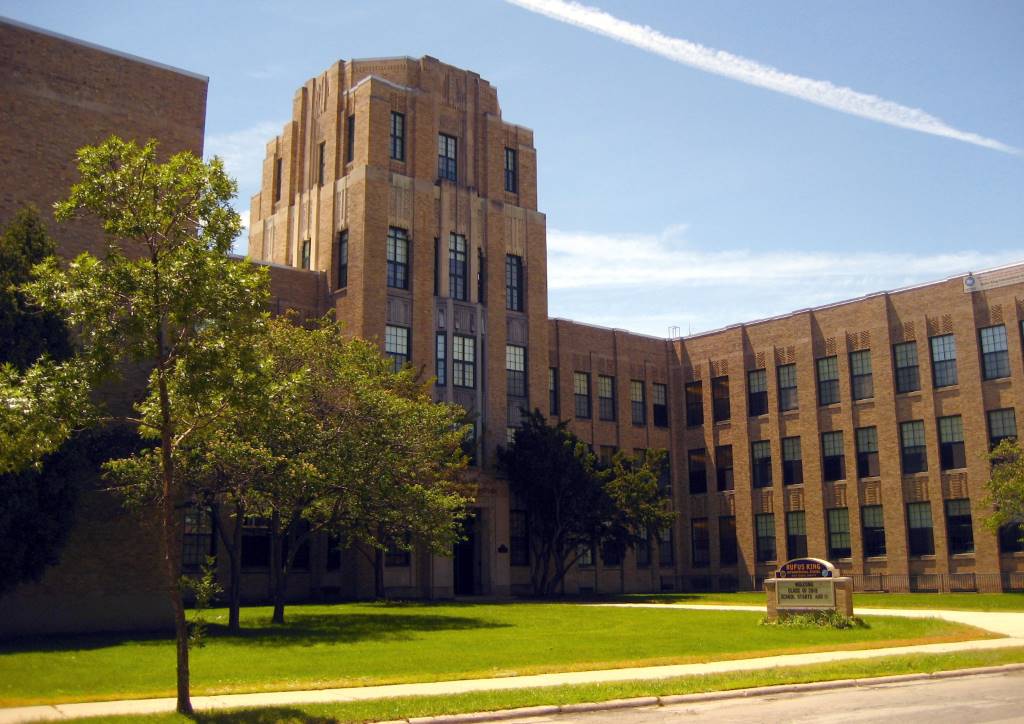Report Explores Metro Milwaukee’s Changing School Leader Workforce
An analysis of public school leaders in Greater Milwaukee
A report released today by the Milwaukee-based #Public Policy Forum# shows that the school leader workforce in Greater Milwaukee became less diverse, less experienced, and less educated over a recent five-year period, and has grown smaller overall.
“Across Metro Milwaukee, nearly 39% of the school leaders who were over the age of 55 have left the profession in recent years. As a result, we saw the average age fall from 47.1 to 45.9 years, while the average experience level declined from 18.4 to 17.1 years.” says Forum Senior Researcher Joe Yeado, the report’s lead author. “This would suggest that school districts are filling vacancies caused by retirement with younger, less-experienced school leaders.”
The report – Guiding Principals – is the second in a three-part series looking at teachers and school leaders in Metro Milwaukee. It set out to quantify the number of public school principals, assistant principals, and district officials in the four-county Greater Milwaukee region (Milwaukee, Ozaukee, Waukesha, and Washington counties) and to provide insight on their characteristics. Using data collected by the Wisconsin Department of Public Instruction, it identifies a number of trends and patterns in the school leader workforce over a period of time that included the adoption of Act 10. The latest school year for which data were available was 2013-14.
Overall, the analysis finds that the metro region lost 32 school leaders between the 2009-10 and 2013-14 school years, a decline of 4.3%. However, the Milwaukee Public Schools (MPS) lost 49 leaders on its own, meaning school districts in the remainder of the region actually gained 17 school leaders during that timeframe.
Another important finding is that the school leader workforce in Metro Milwaukee is predominately white, with minority leaders comprising 27.8% of the workforce. School leaders are more diverse than teachers in the region, where teachers of color comprise 10.9% of the workforce, but still trail the diversity of enrollments, where 45.7% are students of color.
“No district in the region has a school leader workforce that matches the ethnic diversity of its students and in most cases, disparities in the level of diversity are substantial,” says Yeado. “This pattern affects urban, suburban, and rural districts throughout the region – in fact, 37 districts have no minority school leaders at all.”
Other key report findings include the following:
- The reduction in assistant principals accounted for most of the change in school leaders over time, which suggests the region may not have a sizable and stable pool from which to draw future school leaders.
- School leader mobility between districts exists, but of the leaders employed in both 2009- 10 and 2013-14, only 8.8% were working in a different district, suggesting mobility is not a widespread issue.
- Of the assistant principals employed in both 2009-10 and 2013-14, half were promoted to principal and 15% of these promotions were in a different district, which suggests that advancement patterns exist, though leaders may need to move out to move up.
“This research builds off the first report in our Milwaukee Educator series, which showed that the predominantly white teacher workforce had declined by 5%, with districts responding by hiring less experienced, but not necessarily younger teachers to fill vacancies. The final report in the series will examine the teacher workforce pipeline to understand if it aligns with the number of teachers who may retire in the near future,” says Yeado. “Taken together, this body of research will help to inform school district leaders, policy stakeholders, and the public, about the people who lead our schools and educate our children.”
The full report – which was funded, in part, by grants from the Greater Milwaukee Foundation and Northwestern Mutual Foundation – can be downloaded at the Forum’s web site, www.publicpolicyforum.org.
Milwaukee-based #Public Policy Forum#, established in 1913 as a local government watchdog, is a nonpartisan, nonprofit organization dedicated to enhancing the effectiveness of government and the development of southeastern Wisconsin through objective research of public policy issues.
NOTE: This press release was submitted to Urban Milwaukee and was not written by an Urban Milwaukee writer. While it is believed to be reliable, Urban Milwaukee does not guarantee its accuracy or completeness.
Mentioned in This Press Release
Recent Press Releases by Public Policy Forum
Wisconsin Taxpayers Alliance and Public Policy Forum Unveil New Name Merged Organization Will Be Wisconsin Policy Forum
Dec 21st, 2017 by Public Policy ForumThe two organizations will officially merge on January 1.
Metro Milwaukee’s teacher workforce shows increased stability
Dec 1st, 2017 by Public Policy ForumBut departing teachers are increasingly younger and newer to the profession
Public Policy Forum and Wisconsin Taxpayers Alliance to Merge
Nov 1st, 2017 by Public Policy ForumResearchers at the new group will continue to focus on issues important to state government, local government, schools, Metro Milwaukee, and Wisconsin’s economy.





















